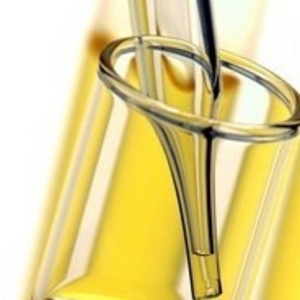Coffee biodiesel properties differ little despite varieties used

June 17, 2014
BY Ron Kotrba
Researchers from the University of Bath’s Centre for Sustainable Chemical Technologies conducted a study recently looking at fuel properties of biodiesel produced from different types of waste coffee grounds.
Twenty different geographically sourced coffees, including regular and decaf and Robusta and Arabica types, were used to make various biodiesel samples that were then tested and fuel properties compared. The end result was little variation in properties despite the spectrum of coffee feedstock used to make the fuels.
Advertisement
Advertisement
“For all samples, with the exception of Vietnamese coffee, the FAME profile of the resulting biodiesel was consistent,” states the study's abstract. “The oils contained between 35 and 40 percent palmitic acid, between 7 and 8 percent oleic acid, between 44 and 50 percent linolenic acid, and between 7 and 8 percent stearic acid, although the fuel properties were reasonably variable across the data set.”
Chris Chuck, Whorrod Research Fellow from the Department of Chemical Engineering, said, “The yields and properties of biodiesel can differ depending on the growth conditions of current biodiesel feedstocks, sometimes causing them to fall out of specification. The uniformity across the board for the coffee biodiesel fuel is good news for biofuel producers and users.”
Advertisement
Advertisement
“We estimate that a small coffee shop would produce around 10 kilograms of coffee waste per day, which could be used to produce around 2 liters of biofuel,” said Rhodri Jenkins, a Ph.D. student in Sustainable Chemical Technologies and first author of the study. “There is also a large amount of waste produced by the coffee bean roasting industry, with defective beans being thrown away. If scaled up, we think coffee biodiesel has great potential as a sustainable fuel source.”
Their study was recently published in the ACS journal Energy & Fuels.
Related Stories
U.S. fuel ethanol capacity fell slightly in April, while biodiesel and renewable diesel capacity held steady, according to data released by the U.S. EIA on June 30. Feedstock consumption was down when compared to the previous month.
The U.S. EPA on July 8 hosted virtual public hearing to gather input on the agency’s recently released proposed rule to set 2026 and 2027 RFS RVOs. Members of the biofuel industry were among those to offer testimony during the event.
The USDA’s Risk Management Agency is implementing multiple changes to the Camelina pilot insurance program for the 2026 and succeeding crop years. The changes will expand coverage options and provide greater flexibility for producers.
The USDA’s National Agricultural Statistics Service on June 30 released its annual Acreage report, estimating that 83.4 million acres of soybeans have been planted in the U.S. this year, down 4% when compared to 2024.
SAF Magazine and the Commercial Aviation Alternative Fuels Initiative announced the preliminary agenda for the North American SAF Conference and Expo, being held Sept. 22-24 at the Minneapolis Convention Center in Minneapolis, Minnesota.
Upcoming Events










